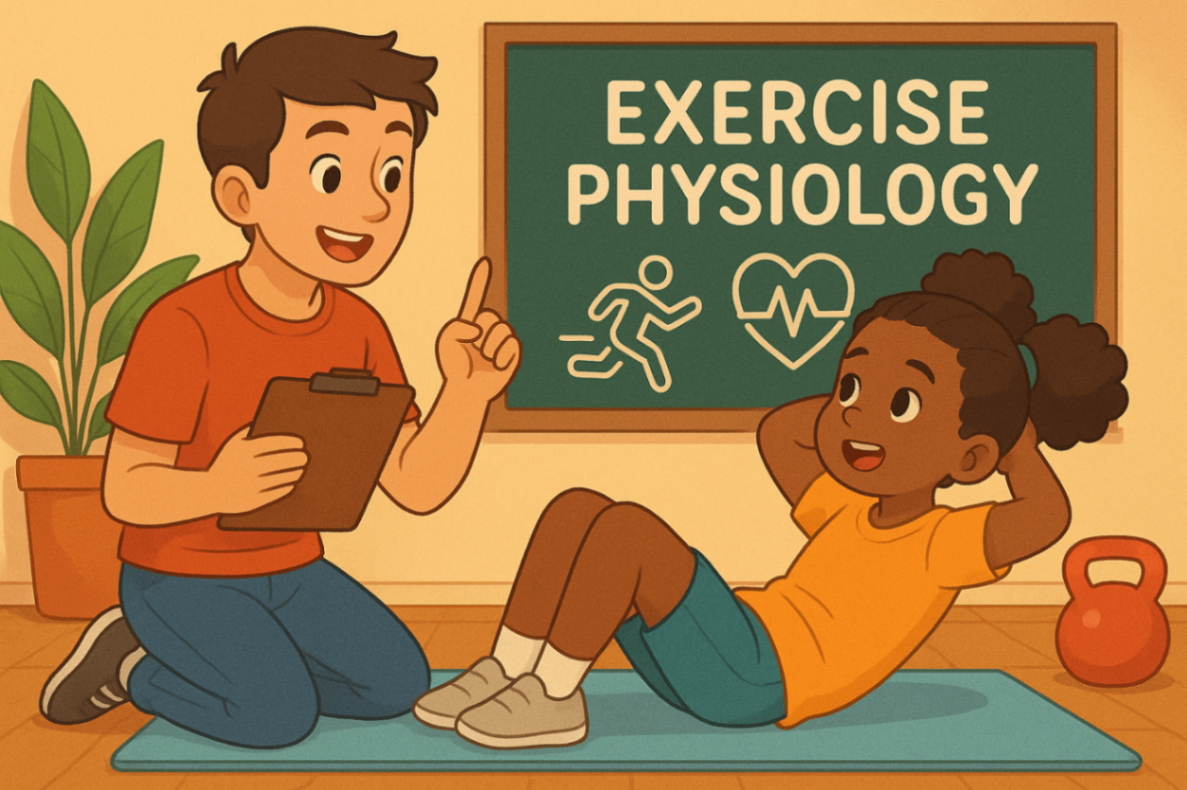
understanding ndis exercise physiology for your health
25 July, 2025
Key Highlights
-
Exercise physiology under the National Disability Insurance Scheme (NDIS) is tailor-made to improve the quality of life for participants with disabilities.
-
Health professionals, such as accredited exercise physiologists, craft personalised exercise programs based on an individual's specific needs and goals.
-
These programs can boost mobility, manage chronic diseases, and reduce pain, contributing to better physical and mental health.
-
NDIS funding supports services that promote independence and enhance daily activities.
-
Evidence-based practices ensure these exercise programs deliver positive effects on overall health and well-being.
Introduction
Exercise physiology is not just any fitness program. It is a way that uses science to help you get better overall health. The national disability insurance scheme (NDIS) includes this service. It helps people who have permanent or large disabilities. The main goal is to let these people get more control over their bodies. They work to handle their medical conditions and live a better life.
With special programs, exercise physiology in the NDIS fits with a person’s own plan. This help in their day-to-day life. It supports their overall well-being and helps boost quality of life. Want to understand who is eligible for NDIS-funded exercise physiology and how the process works? Read NDIS-Funded Exercise Physiology — Eligibility & Process on daar for a clear step-by-step guide.
What Is NDIS Exercise Physiology?

NDIS exercise physiology is about planned and helpful exercise programs made just for people with disabilities under the NDIS. Health professionals work with you to set up a program that matches your needs and your goals. They first check what you need, then they make a plan to help you move better and do daily things more easily.
With your NDIS plan, exercise physiology can help manage long-lasting medical conditions and problems that come from your disability. You work with people who know a lot about this. They help you handle trouble moving, deal with pain, or become more independent. This support can help your quality of life get better and help you do more on your own.
Understanding the Role of Exercise Physiologists
The know-how of exercise physiologists comes from sports science and different health fields. They mostly use exercise as a way to help people with medical conditions and disabilities. These health professionals get their approval from Exercise and Sports Science Australia. They are skilled in making safe and simple exercise plans for every person’s needs and goals.
Exercise physiologists are different from personal trainers. They focus on what each person needs for their health. They use proven methods to help with chronic diseases, trouble moving, and other health problems. The activities they set up are made special for each person and focus on safety and slow growth in fitness.
These experts often work side by side with physiotherapists and other medical staff. They look at many ways to help, building plans to boost strength, coordination, movement, and freedom. Because of this, an exercise physiologist NDIS participants can trust is very important for people in the NDIS. They help people in Australia feel better every day.
How Exercise Physiology Fits Within the NDIS Framework
NDIS exercise physiology services are here to meet the unique needs of people who take part in the scheme. They make sure your goals match up with your NDIS funding. The aim is to give you the right kind of support that helps you get better at things you want to do and lets you be more on your own. This can help you have a better quality of life.
When you start, you will have an initial meeting. At this time, trained physiologists will look at your condition. They will find out what areas need to be better. Based on this, they will come up with exercise programs made just for you to help with those things.
This way of working fits easily into your NDIS plan. You get support that stays with you by checking your progress often and making any changes you may need. No matter if you want to ease pain, get stronger, or be able to do more daily activities, exercise physiology has a key part in helping you do well with NDIS.
Who Can Benefit from NDIS Exercise Physiology?

Anyone who wants to get better health and more independence with the NDIS can get help from exercise physiology services. These programs are made to fit what you need. They help with things like mobility, dealing with diseases that last a long time, and mental health support.
All NDIS participants, no matter their age or health, can use evidence-based exercise to feel better. This includes people who want better posture, want to do more in their daily lives, or want to build mental strength. The main aim is to help you get better health, feel well, and have a good quality of life with exercise physiology.
Eligible Conditions and Disability Types
NDIS exercise physiology helps people who live with many different disabilities and health problems. Health professionals work with each person to make a plan that fits their needs. These plans help people get stronger, move better, and deal with health problems. The program supports those with:
-
Intellectual disabilities: This helps improve thinking and body movement.
-
Chronic diseases: It supports control of long-term problems like diabetes and arthritis.
-
Neurological disorders: It helps with issues like cerebral palsy.
-
Mobility issues: It can lower the risk of falls and help people feel steadier.
Every exercise physiology plan is built for the person, depending on what kind of disability they have and how much help they need. These targeted programs can support both physical and mental health. Their flexibility means that NDIS participants can get the right help to improve their quality of life.
Age Groups and Individual Needs Supported
NDIS exercise physiology is for people of any age, from kids to older adults. The goal is to give them plans made just for them that help support their own needs and specific goals. If you want to get better at daily activities or hope to be more independent over time, these programs can meet those needs.
Children and teens can use exercise physiology to get better at coordination, mobility, and feel more confident. Adults might want to try these exercises to help get back skills they lost or manage health problems they have. Older people can work on strength and balance, which helps stop falls and makes sure they keep feeling good.
The exercise physiologists always think about what each person needs. They create plans people can add into the way they live. This helps people reach better overall health by using targeted exercises to make their bodies stronger and meet their goals.
Services Provided by NDIS Exercise Physiologists in Australia

Accredited exercise physiologists in Australia offer a range of NDIS services made just for you. They look at your health and build a plan of exercise that fits your needs. These plans help you move better and feel better every day.
These experts have years of training. They hold the right certificates. They can visit you where you live, or meet you at a clinic, gym, or other place in the community. NDIS exercise physiology helps you move, deal with health problems that can last a long time, and live more on your own. At the same time, they work to give good healthcare to people all over Australia.
Assessment, Goal Setting, and Program Design
|
Process |
Key Highlights |
|---|---|
|
Initial Assessment |
Evaluates health history, mobility, strength, and long-term goals. |
|
Goal Development |
Defines specific, achievable objectives based on individual needs. |
|
Program Design |
Personalised exercise programs targeting endurance, strength, coordination, and pain management. |
An accredited exercise physiologist conducts thorough health evaluations to understand your challenges. They then work to set realistic goals that align with your aspirations and medical requirements.
By designing a tailor-made regime, these experts ensure you achieve measurable progress that supports your independence, daily activities, and overall health.
Ongoing Support, Monitoring, and Progress Review
Exercise physiologists play a key role in helping you by staying with you through every step. They check on your progress to make sure your exercises work well. They also make sure you are following all safety rules.
Progress is looked at often. Goals can be changed any time you need them to be. This way helps you feel more in control. It supports small but steady improvements in your mobility, strength, and mental health.
You stay in touch with your team all the way. These specialists are always working to make your programs better. This helps keep positive effects in place for the whole NDIS plan.
Conclusion
NDIS exercise physiology is very important for the health of people with disabilities. It helps to improve both their body and their mental health. When you work with a qualified exercise physiologist, you get a plan that is made just for you. This plan is built to suit your goals and your specific needs. These programs don’t just help with fitness. They also lift mood and support mental health, so you get help in all parts of your life.
If you want to know how NDIS exercise physiology can help you or someone you love, you can reach out to us. We can talk about your needs and find the best way to help.
Frequently Asked Questions
How do I access NDIS-funded exercise physiology services?
You can get NDIS-funded exercise physiology help when your NDIS plan has funds for these supports. In Australia, health professionals and exercise physiology experts work with you. They set up a program just for you. You can have this at a clinic, at home, or in a local spot.
What should I expect during my first session?
Your first session is done by an accredited exercise physiologist. In this meeting, they check your health and talk with you about your individual needs. You and the exercise physiologist will also talk about your health goals. After this, they make a custom exercise program just for you. This plan is made to help you grow and reach your goals.
Is there a difference between physiotherapy and exercise physiology?
Yes. Physiotherapy is mostly about finding and treating injuries. On the other hand, exercise physiology is more about stopping health problems before they start and helping the body heal by using exercise. Both physiotherapy and exercise physiology are part of allied health. But exercise physiology also helps people by making exercise plans for those with chronic diseases and different medical conditions. It takes a broad look at physiology to improve health.
How are my goals incorporated into my exercise program?
Your specific goals are the heart of your program. Health professionals look at your individual needs and use your NDIS plan to help you. They plan activities to build strength, help with mobility, manage pain, or focus on what matters most to you. They also keep checking your progress and watch how things go over time. Success comes from this regular monitoring and checking how well you are moving forward.
Can NDIS exercise physiology be provided in my home or community?
Yes, NDIS exercise physiology can be done in your home, in community places, or in places you like such as gyms and parks. A team of accredited exercise physiologists works with you to make sure you get the best help and support for your daily activities. This service is available all over Australia.
.svg)

















